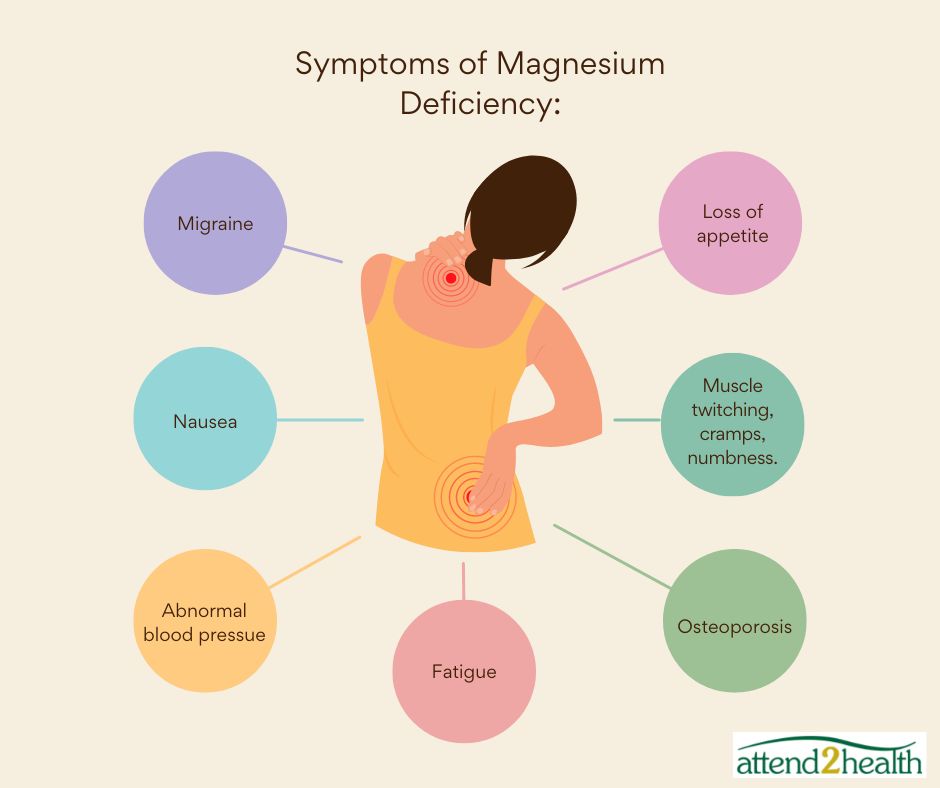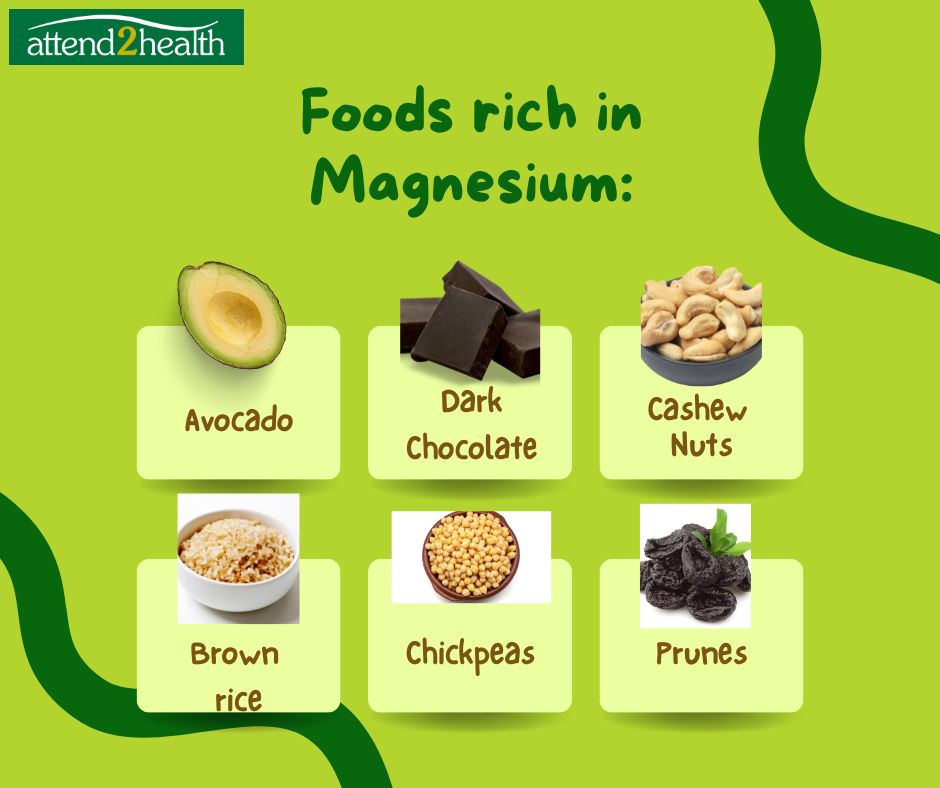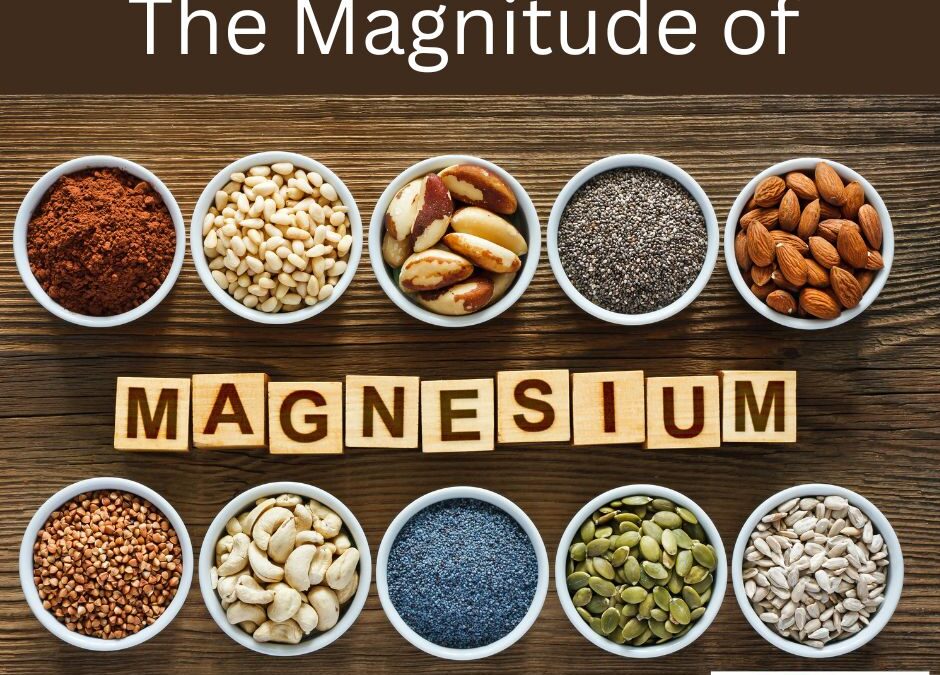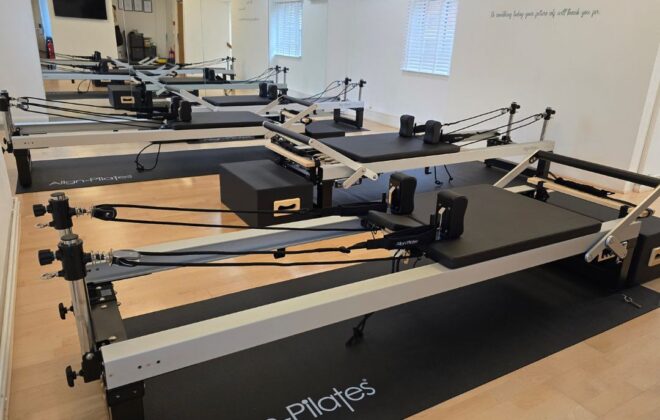The Magnitude of Magnesium:
Osteopath Ginelle Kay explains how Magnesium is a mineral that helps over 300 enzyme reactions in the body. It is hugely important for the function of muscles, nerves and for supporting the immune system. Research shows that around 15-20% of the population are magnesium deficient.

Symptoms of magnesium deficiency:
Loss of appetite
Nausea
Fatigue
Muscle twitching/cramps/numbness
Migraine
Abnormal heart rhythm or high blood pressure
Osteoporosis
Magnesium is required to help the activation of vitamin D which is used to absorb calcium into the bones. This makes it a very important mineral in keeping your bones strong and healthy as you get older.
People who are likely to suffer from magnesium deficiency are:
People with gut issues such as crohns or coeliac
Type 2 diabetes
People with alcohol dependence
People who take heartburn medication such as omeprazole
There are many different types of magnesium, this can be confusing when deciding which supplement to take. Please read below to see which type of magnesium could be best for you.
Magnesium threonate- For brain health, memory issues, anxiety and depression
Magnesium Malate-For muscle spasm/cramp, chronic fatigue or restless leg syndrome
Magnesium Taurate- For heart health and blood pressure
Magnesium glycinate- For sleep issues
Magnesium oxide and citrate- For constipation, working locally on the gut
Magnesium sulfate- For inflammatory reduction and weight loss
Magnesium glycinate- This works well for most conditions and is a good broad spectrum option. Alternatively, a magnesium complex can help you get the benefits of several magnesium types.
Do not take more than 1 individual type of magnesium, unless it is in a magnesium complex supplement. The recommended dose is 400 mg per day taken at bedtime or with your evening meal.

Foods that are rich in magnesium:
Cashews and Peanuts
Prunes
Dark chocolate
Avocado
Potato
Brown rice
Chickpeas
Please act safely when taking supplements and ensure you gain advice from your GP.
For more information why not book a free chat with our Osteopath Ginelle or our Nutritionist Deborah. Just call 01763 87 80 87.
Louise Hampton
Related Posts
Latest Feedback
Google Rating
5.0 228 reviews
-
Richard Haydon ★★★★★ a month ago
I have been going to Attend2Health for many years to address various back and joint problems. All of the chiropractors and … More osteopaths I have seen have been brilliant, as are the reception staff. In the past few months osteopath Meghan Carolan has been helping me with a problem with my right shoulder which was very painful and had limited movement. Following my last visit my shoulder is now almost fully functional again and the pain much reduced. So many thanks Meghan. -
Liz Wright ★★★★★ a month ago
On separate occasions earlier this year, I suffered a painful trapped nerve in my arm. I saw physio Joanne the first time … More and osteopath Meghan the second. I received excellent treatment and advice from both and with just a couple of sessions they sorted me out each time. More recently Meghan has been treating me for very painful sciatica. Initially I was in agony and could barely walk, even with the aid of a stick. I had one treatment a week and by the third session I was virtually out of pain and walking normally. Meghan also gave me specific exercises to do at home and was a pleasure to talk to. I wouldn't hesitate to return if I have problems in the future. Big thank you to Meghan! And to all the staff at Attend2Health who make it a friendly, welcoming place to visit. -
Carol MacDonald ★★★★★ 4 months ago
Having hurt my back on holiday I went to Attend to Health for first time and saw Megan the Osteopath and I can't speak … More highly enough about her. She has been amazing. After 4 sessions she has got my back back to normal. Having limped in there 4 weeks I am now walking properly.
Can't speak highly enough about Megan and she's such a lovely lady and always has a smile on her face.
As I left She said "keep doing your stretches!". And I will.
Carol MacDonald




